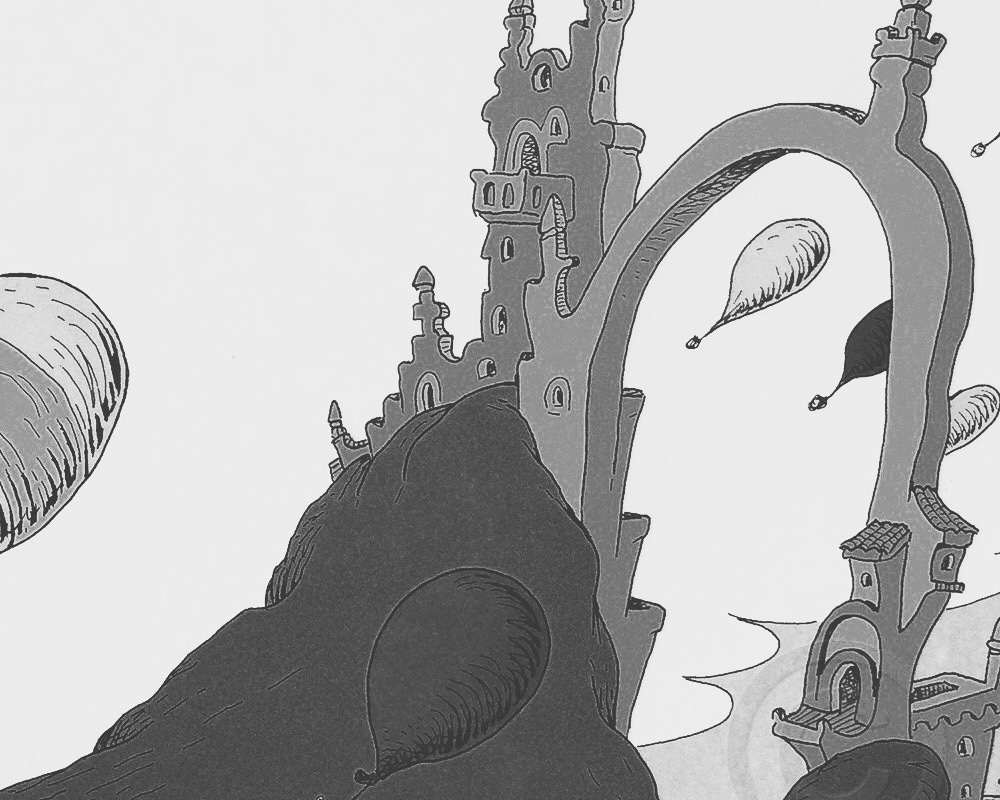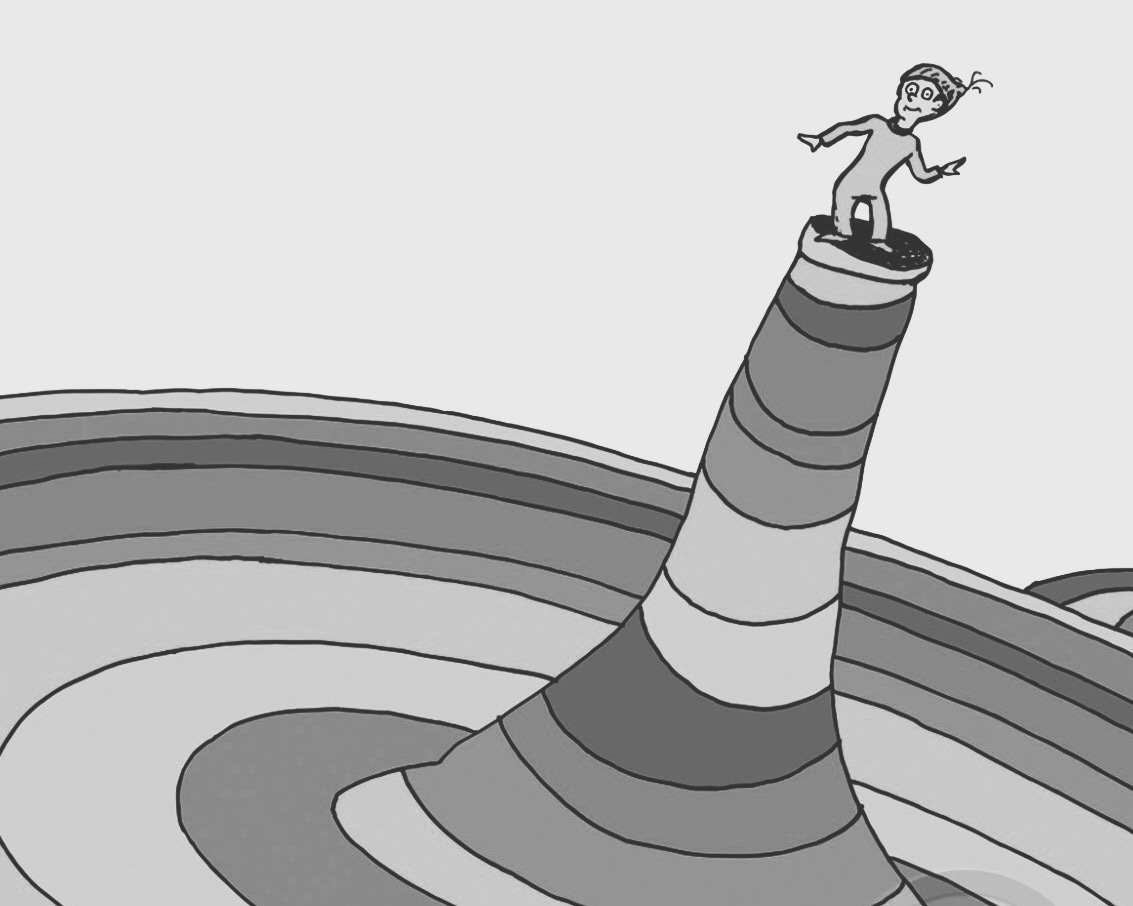Oh the Places You'll Stay
In Defense of Settling Down, Settling In, and Embracing the Right-Here
The book “Oh, the Places You’ll Go!” was first published in 1990 by Theodor Seuss Giesel, Dr. Seuss, his final book before his death one year later. To date, the book has sold more than 50 million copies and is a go-to gift for newborns and graduates the world over. When our first child was born, we received no less than 3 copies of the book from various friends and family. Its popularity makes absolute sense.
“Oh, the Places You’ll Go!” is effusively and unapologetically optimistic, an ode to our modern dream-chasing impulses. I’m appreciative of the message and understand the longing. When a child is born or a student graduates, their caring and loving support system wants to help them dream big, run far, and shatter the limits and ceilings that might’ve bound previous generations.
But in our era of social media fueled wanderlust, when “right here” never seems as good as “over or out there,” an insidious inversion if possible, and even likely, as we find ourselves subtly coaxed into a constant state of chasing. “The places you’ll go” always seems so much better the “the place where you are” and this is a dangerous way to live life. We might say it’s actually a way to not live life at all, for life is always and only lived in the “right here and right-now.”
Dreaming big, running far, and shattering limits and ceilings might all be good and well intentioned endeavors, the outlines of a life shaped by meaning, purpose, and significance. But never at the cost of coloring our present reality with scorn and disdain.
Dr. Seuss tells us, “You can steer yourself in any direction you choose.” But this is a half truth. Yes, we have the agency to move in a variety of directions throughout life. This is a gift. But the idea that any direction is available to us is a myth. To be human is to live within limits. The time, place, and circumstances into which we are born offer the possibilities and impose the boundaries which shape our lives. The key to experiencing freedom and joy in any and all situations is in learning to maximize possibilities while also honoring boundaries. Limits might be pushed but they cannot be broken; when we try, it is we that break. Freedom and joy are found when we stand at the intersection of possibilities and boundaries with gratitude, remembering that, “the boundary lines have fallen for me in pleasant places” (Psalm 16:6).
Dr. Seuss tells us, “You’ll look up and down streets. Look ‘em over with care. About some you will say, ‘I don’t choose to go there.’” Fair enough. There are places that are possible but unwise. Other places are even enticing but destructive. A reckless chasing after the “places we’ll go” often leads down these paths. Throughout the Biblical story, God sends people to places they would not have chosen to go for themselves. Moses was sent back to Moses, Jonah to Nineveh, Elijah to confront Ahab and Jezebel, Esther to King Xerxes, Peter to Cornelius’ house, Ananias to Saul in Damascus, the disciples to the Gentiles, Jesus to the cross. Each and every one of these individuals relented, “I don’t choose to go there.” And yet, God sent them and they went, leading to glorious surprise. Sometimes “right here” is the place we would, in and of ourselves, choose not to go. And yet, we remember God’s instruction to, “seek the peace and prosperity of the city to which I have carried you into exile” (Jeremiah 29:7).
Dr. Seuess tells us, “You’ll be on your way up! You’ll be seeing great sights! You’ll join the high fliers who soar to high heights.” Honestly, this is the life I mostly long for on most days. Upward mobility and whatever frenzied activity it takes, whatever the cost—spiritual, mental, emotional, relational—is our cultural sign of success. If we cannot answer the question, “How are things?” with a curt, “So busy,” what are we even doing with our lives? This is the pressurized air we breathe in a world so decidedly marked by external markers of success. But this is also antithetical to the way of Jesus, “Who, being in very nature God, did not consider equality with God something to be used to his own advantage; rather he made himself nothing by taking the very nature of a servant, being made in human likeness. And being found in appearance as a man, he humbled himself by becoming obedient to death—even death on a cross! Therefore God exalted him to the highest place” (Philippians 2:6-9). This is what is meant by the upside-down kingdom of God. The way up to see great sights and join the high fliers up at the high heights is to go down, to descend to the depths of ourselves, our egos, our self-centered ambitions, to take on service and servanthood, for God’s glory and for the good of all.
Finally, Dr. Seuss tells us, “All alone! Whether you like it or not, alone will be something you'll be quite a lot.” He has a point here. We live in a time when the U.S. Surgeon General has deemed loneliness a public health crisis. But in both “Oh, the Places You’ll Go!” and our current cultural moment, this pervasive isolation is mostly self-inflicted, self-imposed, and self-sustained—“self” being the operative word. Because in truth, we need not be alone. To go the way of self is to walk a path paved for one. There is no room there for another. But there is another path, paved broad and wide. It may not lead in a direction we initially and naturally deem most desirable but it leads in the direction that the human soul most innately and naturally leans—it leads us toward belonging. Once we turn up this path, we discover other pilgrims on the journey, the people of God we would never have chosen for ourselves but a people we were chosen for. And together God’s promises to us… “Never will I leave you; never will I forsake you” (Hebrews 13:5), “Even though we walk through the darkest valley, we will fear no evil, for God is with us” (Psalm 23:4), and that “neither death nor life, neither angels nor demons, neither the present nor the future, nor any powers, neither height nor depth, nor anything else in all creation, will be able to separate us from the love of God that is in Christ Jesus our Lord” (Romans 8:38-39).
So, as we head into another year full of promise and possibility, teeming with a plethora of potential elsewhere’s, may we learn to settle down, settle in, and embrace the right here. Oh, the places we might stay…





